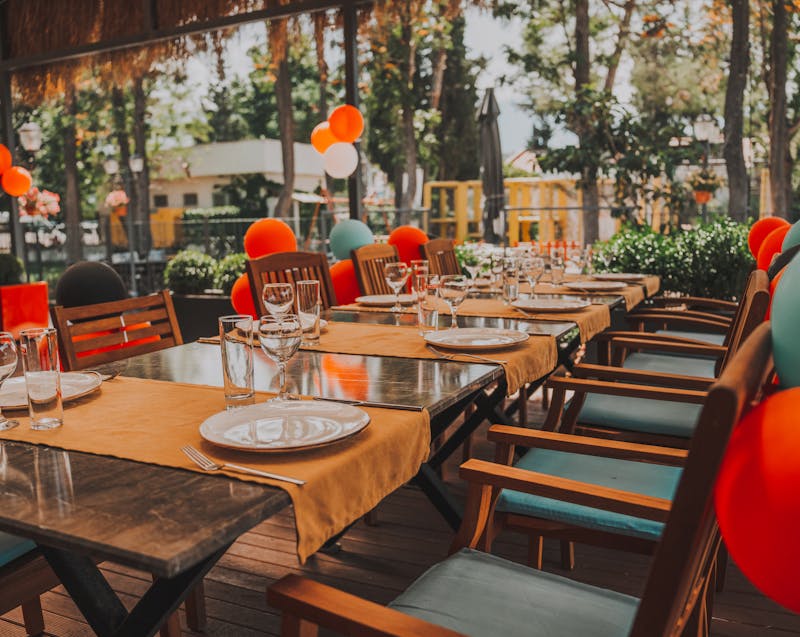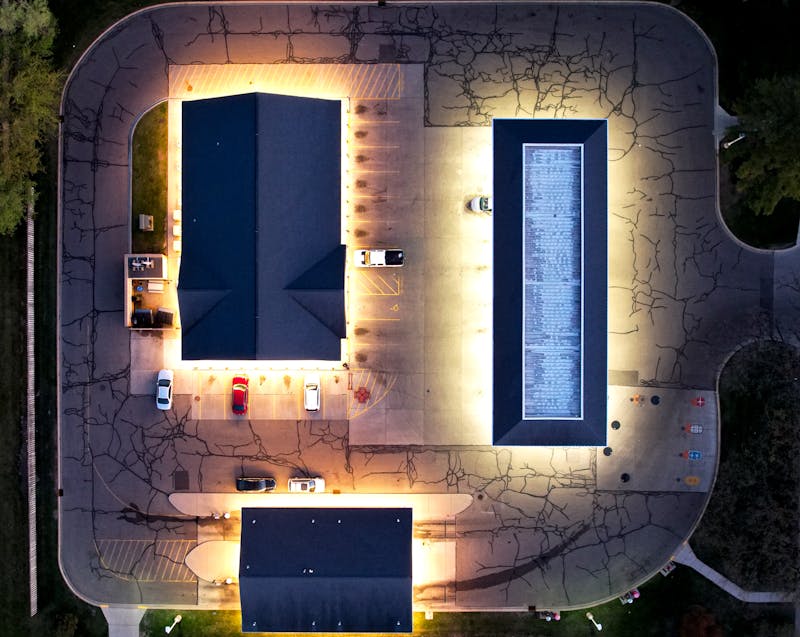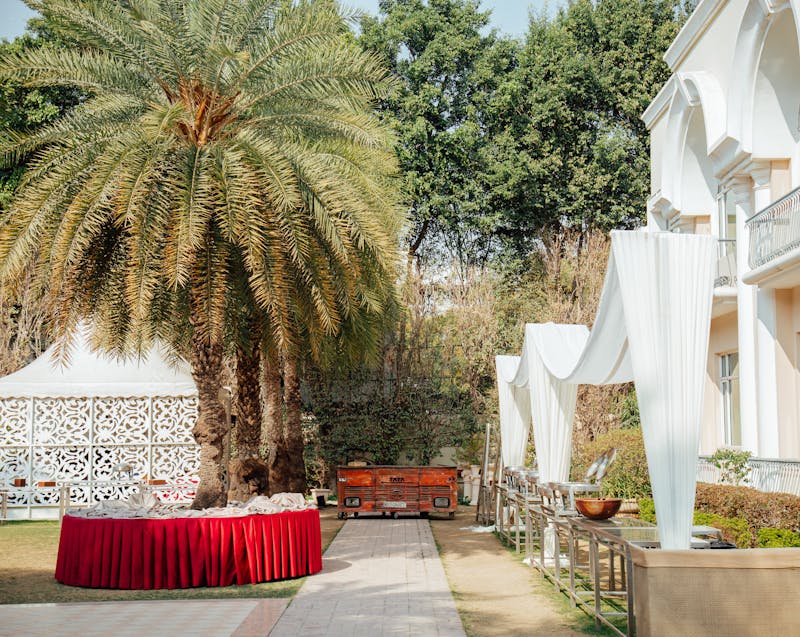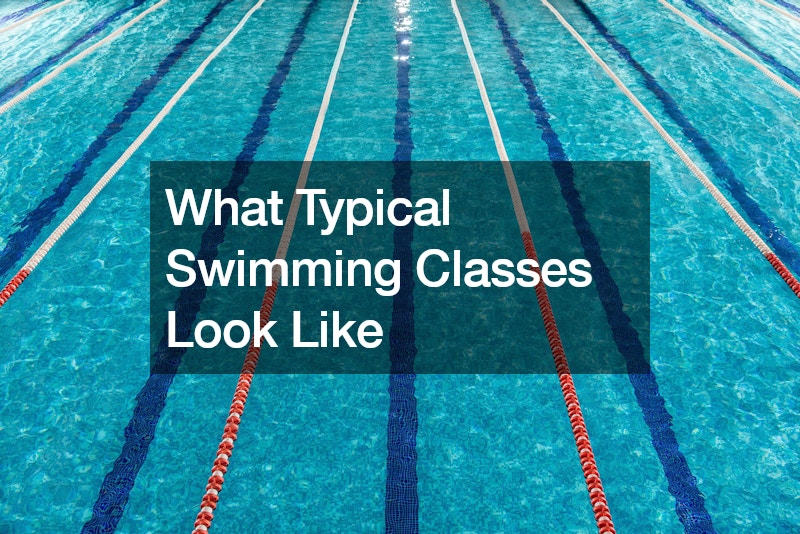
- Hybrid venues provide unmatched flexibility, allowing seamless transitions between indoor elegance and outdoor charm.
- Hosting events in spaces that combine both environments enhances guest comfort, safety, and overall experience.
- These venues offer built-in contingency options for unpredictable weather, ensuring stress-free planning.
- Design continuity — through lighting, décor, and layout — creates a cohesive ambiance across both areas.
- Hybrid venues support sustainability and wellness goals by utilizing natural light and open-air environments.
- Careful planning and layout coordination are key to managing logistics, acoustics, and temperature balance.
- As demand for adaptable experiences grows, more event venues offer both indoor and outdoor spaces to meet modern event needs.
In today’s ever-evolving event landscape, versatility is the new luxury. Event planners and hosts are no longer satisfied with spaces that offer a single setting — they now seek venues that combine both elegance and flexibility. This growing demand has given rise to hybrid venues, where event venues offer both indoor and outdoor spaces designed to provide the best of both worlds.
Whether it’s a wedding that moves seamlessly from a sunlit garden ceremony to an intimate indoor reception, or a corporate retreat that alternates between open-air brainstorming and indoor presentations, these adaptable spaces have transformed how events are planned. The appeal lies in their ability to accommodate various weather conditions, design preferences, and guest experiences — all while maintaining a cohesive atmosphere.
As guests increasingly value comfort, ambiance, and safety, the hybrid indoor-outdoor venue has become the gold standard for hosting memorable, flexible events.
The Rising Demand for Hybrid Indoor-Outdoor Venues
The demand for flexible event venues has skyrocketed in recent years, driven by changing event expectations and lifestyle preferences.
Several factors contribute to this growing trend:
- Health and safety awareness: After the pandemic, many event organizers realized the importance of fresh air and social distancing. Outdoor settings offer comfort, while indoor spaces provide shelter and amenities.
- Event diversity: Hybrid venues cater to weddings, corporate events, galas, and family celebrations alike. The versatility of layout and design attracts a broad audience.
- Guest experience: Attendees enjoy the option to move between different atmospheres — a lively outdoor cocktail area and a cozy indoor dining hall, for instance.
The combination of functionality and visual appeal has made these venues a preferred choice. Clients no longer want to gamble on unpredictable weather or limited setups; they want flexibility that ensures success regardless of the circumstances.
Benefits of Hosting Events in Hybrid Indoor-Outdoor Venues
The advantages of hybrid event venues extend beyond aesthetics. They offer practical solutions that enhance guest experience, planning efficiency, and event resilience.
1. Versatility and Flexibility
When event venues offer both indoor and outdoor spaces, hosts gain the freedom to design multiple experiences within one event.
- Adaptable design: Use the outdoor area for ceremonies, networking, or cocktail receptions, and the indoor hall for dining, entertainment, or presentations.
- Smooth transitions: Guests can move effortlessly between spaces without disrupting the flow of the event.
- Seasonal adaptability: Hybrid venues work year-round. In warmer months, outdoor areas shine; during colder seasons, the indoor portion provides warmth and comfort.
This flexibility means fewer logistical headaches and more opportunities for creativity.
2. Enhanced Guest Comfort and Experience
Guests appreciate comfort and choice. Hybrid spaces allow them to mingle, relax, and enjoy the event in their preferred setting.
- Balanced atmosphere: Some guests prefer the openness of outdoor spaces, while others enjoy the climate control of indoor rooms.
- Reduced congestion: Dividing activities between indoor and outdoor areas prevents overcrowding.
- Customizable zones: Lounge outdoors, dine indoors, or create a dance floor under the stars.
Providing these options elevates the overall guest experience and leaves a lasting impression.
3. Improved Event Aesthetics and Ambiance
The visual appeal of combining nature and architecture is unmatched. Hybrid venues allow event designers to merge scenic outdoor views with stylish interiors.
- Natural backdrop: Outdoor gardens, courtyards, or terraces provide stunning scenery for photography.
- Decor continuity: Matching floral designs, lighting schemes, and color palettes tie both areas together.
- Day-to-night transformation: Natural light enhances daytime events, while indoor lighting creates a warm evening atmosphere.
This blend of aesthetics ensures every photo, interaction, and moment feels cohesive and beautiful.
4. Weather-Resilient Event Planning
One of the greatest advantages of hybrid venues is their built-in contingency plan.
- Quick relocation: If rain or wind disrupts outdoor activities, the event can continue indoors without major delays.
- Shelter options: Canopies, covered patios, and retractable roofs add additional layers of protection.
- Stress reduction: Hosts and planners enjoy peace of mind knowing their event can proceed regardless of weather conditions.
This resilience makes hybrid venues the ideal choice for planners who value preparedness and professionalism.
5. Increased Capacity and Space Optimization
Dual-space venues can host larger groups without sacrificing comfort or safety.
- Zoned entertainment: Use outdoor areas for mingling and photo booths, while indoor sections handle dining or presentations.
- Social distancing flexibility: Outdoor spaces make it easier to accommodate safety measures when needed.
- Smooth crowd management: Guests can spread out naturally, improving flow and reducing bottlenecks.
This expanded capacity allows organizers to host more dynamic and inclusive events.
Key Features That Make Hybrid Venues Stand Out
Not all venues are created equal. The best hybrid venues are designed with functionality and guest experience in mind.
Key characteristics to look for include:
- Seamless transitions: Sliding glass doors, patios, or terraces that connect both spaces.
- Weather adaptability: Tents, pergolas, and retractable roofs to manage temperature and precipitation.
- Consistent lighting and sound: Integrated systems that maintain ambiance across both areas.
- Sustainable design: Natural ventilation, solar lighting, and energy-efficient structures.
- Accessibility: Smooth pathways and ramps for all guests, including those with mobility needs.
When evaluating potential venues, look for spaces that harmonize aesthetics with practicality.
Event Types That Benefit Most from Hybrid Venues

Certain types of events are particularly well-suited for venues with both indoor and outdoor areas.
1. Weddings and Social Celebrations
- Outdoor ceremonies: Picture a garden or courtyard ceremony surrounded by natural beauty.
- Indoor receptions: Transition seamlessly into an indoor hall for dining and dancing.
- Photography variety: Take advantage of both natural light and controlled indoor lighting.
2. Corporate Events and Conferences
- Networking zones: Host formal meetings indoors and casual breakout sessions outdoors.
- Wellness focus: Open-air segments promote creativity and reduce stress.
- Branding opportunities: Outdoor displays and installations can complement indoor presentations.
3. Product Launches and Brand Activations
- Dual experiences: Showcase products outdoors while offering media briefings inside.
- Flexible displays: Outdoor stages for demonstrations, indoor lounges for discussions.
- Visual engagement: Hybrid setups create dynamic photo opportunities for social media.
4. Private Parties and Family Gatherings
- Interactive setups: Kids’ play zones outside; dining areas indoors.
- Comfortable seating: Mix shaded outdoor lounges with indoor seating.
- Entertainment balance: Music, games, and dining can take place simultaneously in different zones.
5. Charity Galas and Fundraisers
- Cocktail hour outdoors: Start the evening with mingling under the stars.
- Formal dinner indoors: Transition to a refined setting for speeches and auctions.
- Improved ambiance: The dual setting enhances engagement and guest enjoyment.
Each event type benefits from the freedom and flow that hybrid venues provide.
Design and Planning Tips for Seamless Indoor-Outdoor Events
To make the most of a hybrid venue, event planners must design layouts that maximize efficiency and comfort.
Here are practical tips for planning a flawless experience:
- Create a logical layout flow:
- Arrange entrances, exits, and seating to ensure smooth transitions.
- Use décor elements like floral arches or string lights to connect both spaces visually.
- Plan for lighting consistency:
- Use a mix of natural and artificial lighting to maintain ambiance throughout the event.
- Consider warm uplighting indoors and soft fairy lights outdoors for cohesion.
- Prepare for sound management:
- Use a unified audio system to balance sound across both zones.
- Avoid placing speakers too close to open-air areas where sound can escape.
- Develop a weather contingency plan:
- Have tents or canopies ready for outdoor segments.
- Check forecasts and coordinate with vendors for quick setup adjustments.
- Maintain temperature comfort:
- Use portable heaters, fans, or cooling misters to keep guests comfortable.
- Ensure indoor climate control complements outdoor conditions.
- Design distinct activity zones:
- Example: Cocktail hour outdoors, dinner indoors, and dancing on a patio.
- This approach creates an organic event flow that keeps guests engaged.
- Ensure accessibility and safety:
- Provide non-slip surfaces and adequate lighting for pathways.
- Use clear signage to direct guests between areas.
With thoughtful planning, hybrid venues become effortless, immersive environments for all.
The Sustainability and Wellness Connection
Sustainability and wellness are increasingly vital in modern event planning, and hybrid venues naturally support these priorities.
Eco-friendly advantages include:
- Reduced energy usage: Outdoor lighting and natural ventilation decrease reliance on electricity.
- Lower carbon footprint: Using outdoor spaces minimizes air conditioning needs and artificial lighting.
- Locally sourced materials: Many venues use recycled materials or sustainable landscaping.
Wellness benefits for guests:
- Exposure to natural light and fresh air boosts mood and energy.
- Green surroundings promote relaxation and reduce stress.
- Open spaces encourage social interaction and movement.
By choosing a venue that integrates nature with structure, organizers align their events with modern sustainability values while promoting guest well-being.
Challenges and How to Overcome Them
While hybrid venues offer numerous advantages, they also come with unique planning challenges. Addressing these early ensures a seamless event.
Common challenges and solutions:
- Weather unpredictability:
- Always have a backup indoor plan ready.
- Invest in quality tents or transparent canopies for outdoor coverage.
- Sound and lighting inconsistency:
- Use professional AV technicians to ensure a balance between areas.
- Schedule test runs before the event.
- Logistical complexity:
- Hybrid setups may require additional staff or equipment.
- Hire an experienced planner who specializes in multi-zone events.
- Permits and local regulations:
- Check for outdoor noise limits or event curfews.
- Secure necessary permits well in advance.
- Cost considerations:
- While dual setups can add expenses, they also reduce risks associated with last-minute venue changes.
- Balance the budget by prioritizing multipurpose décor and reusable structures.
Proactive planning helps mitigate these challenges and ensures a successful hybrid event experience.
What to Look for When Choosing the Right Venue

Selecting the perfect venue requires careful consideration. Beyond visual appeal, functionality and guest experience should drive your decision.
Here’s a detailed checklist:
- Ample indoor and outdoor space: Enough room to host various activities without crowding.
- Built-in contingency options: Tents, retractable roofs, or shaded areas for weather protection.
- Strong accessibility: Easy navigation for guests with mobility needs.
- Quality amenities: Restrooms, kitchens, and ample parking.
- Good location: Proximity to transportation, hotels, and local attractions.
- Consistent ambiance: Interiors and exteriors that harmonize aesthetically.
- Reputation and reviews: Feedback from previous clients on event flow and service quality.
Pro tip: Visit the venue both during the day and at night to evaluate lighting, temperature, and overall atmosphere.
The Future of Hybrid Event Venues
The rise in demand for flexible spaces is not a passing trend—it’s the future of event design. As hosts seek to create immersive, adaptable experiences, more event venues offer both indoor and outdoor spaces equipped with smart technology and eco-conscious designs.
What to expect in the coming years:
- Technological innovations: Smart lighting, retractable walls, and digital climate control systems.
- Sustainability focus: More venues using renewable energy sources and eco-friendly architecture.
- Customizable layouts: Modular furniture and convertible stages for flexible setups.
- Guest engagement: Venues designed to promote social interaction through open-air lounges and integrated activity zones.
Hybrid venues are setting new standards in the event industry — blending comfort, style, and innovation in ways that redefine the guest experience.
Conclusion: The Perfect Balance of Comfort, Beauty, and Functionality
Hybrid indoor-outdoor event venues represent the future of hosting — combining flexibility, ambiance, and practicality in one cohesive package. They provide the freedom to adapt, the elegance of natural and architectural beauty, and the assurance that an event can proceed smoothly no matter the conditions.
By choosing a venue that blends both indoor and outdoor features, hosts can deliver unforgettable experiences that engage every guest. Whether you’re planning a wedding, corporate event, or private celebration, these dual-space venues truly offer the best of both worlds — ensuring every moment feels perfectly curated and effortlessly enjoyable.



